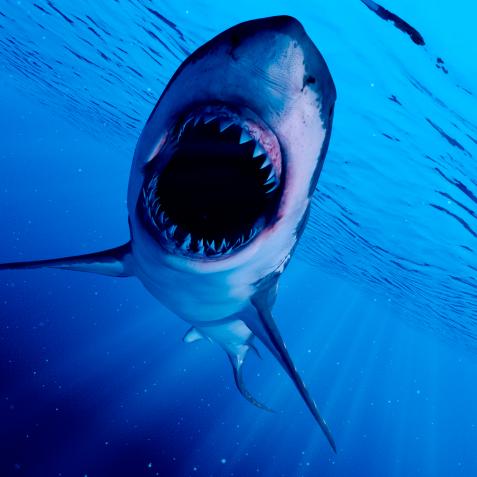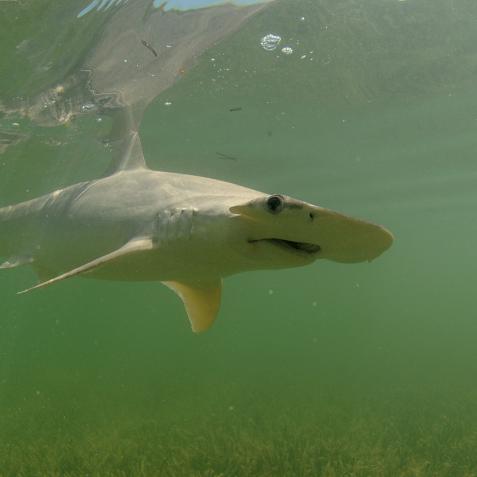
What Caused the Death of Great White Found With Sea Turtle Stuck In Mouth?
Shark scientist Dr. Neil Hammerschlag debunks news of Great White dying from choking on a sea turtle.
What caused the fate of a two-ton great white shark found with a sea turtle lodged in its mouth? Recent reporting claims that the shark faced its unfortunate death for biting off more than it could chew -- however, Dr. Neil Hammerschlag of the University of Miami Rosenstiel School begs to differ -- describing the story as “plausible, but… unlikely.”
The original story and photos were first shared by Greg Vella through a post in a private Facebook group for commercial fisherman. In the post, Vella wrote that he was “out commercial ‘ken ken’ style fishing for tuna” when he initially heard about a white shark being seen in the surrounding waters with a sea turtle in its mouth. The following day, bait receivers found the great white dead, tangled in the netting with the turtle appearing half digested in its mouth.
Dr. Neil Hammerschlag explains, “this whole idea of a sea turtle getting stuck in the mouth of a great white, and then the great white starving to death because its unable to feed, seems a bit far-fetched.” He elaborates that great whites, and especially mature sharks such as the one found, routinely eat large prey, including sea turtles. Their jaws and teeth are built for crushing through tough material whether that’s muscle, bone or shell.

“This whole thing seems pretty strange,” Hammerschlag says. “These great white sharks are clearly capable of consuming a large sea turtle… the fact that it ended up in a fishermen net might tell us that maybe there’s a little bit more going on behind this story.”
A plausible scenario described by Hammerschlag is that the shark and turtle could have gotten caught in the net together and panicked. Through the chaos, the shark might have potentially ended up with the turtle wedged in its mouth.
Greg Vella, the original source of the story, confirms the most likely cause of both this shark and turtle’s deaths. Vella explains the net that captured these animals is a Teichi-Ami fish trap.
“These offshore fish traps are anchored to the bottom, are comprised of fence-like netting that leads to a collection area at the end of the trap. Fish, such as sardines, tuna, yellowtail and amberjack are harvested live from the end of the trap. Bycatch, such as rays, are released alive through panels in the nets.”
Vella contacted various fisherman who witnessed the approximately 19-foot white shark recovered from their nets.
“Local commercial fishermen speculate that the white shark followed the turtle into Techi-Ami, then consumed it,” Vella continues. “Then the white shark became entangled in the buoy lines that support the netting, and expired due to asphyxiation.”

White sharks are a common occurrence on the Japan Coast. Vella is a local of the area, who importantly notes “commercial fisherman in Japan do not target white sharks, and see them as an important predator in the food chain.”
After the shark was recovered, it was donated to a local University for further study.


















